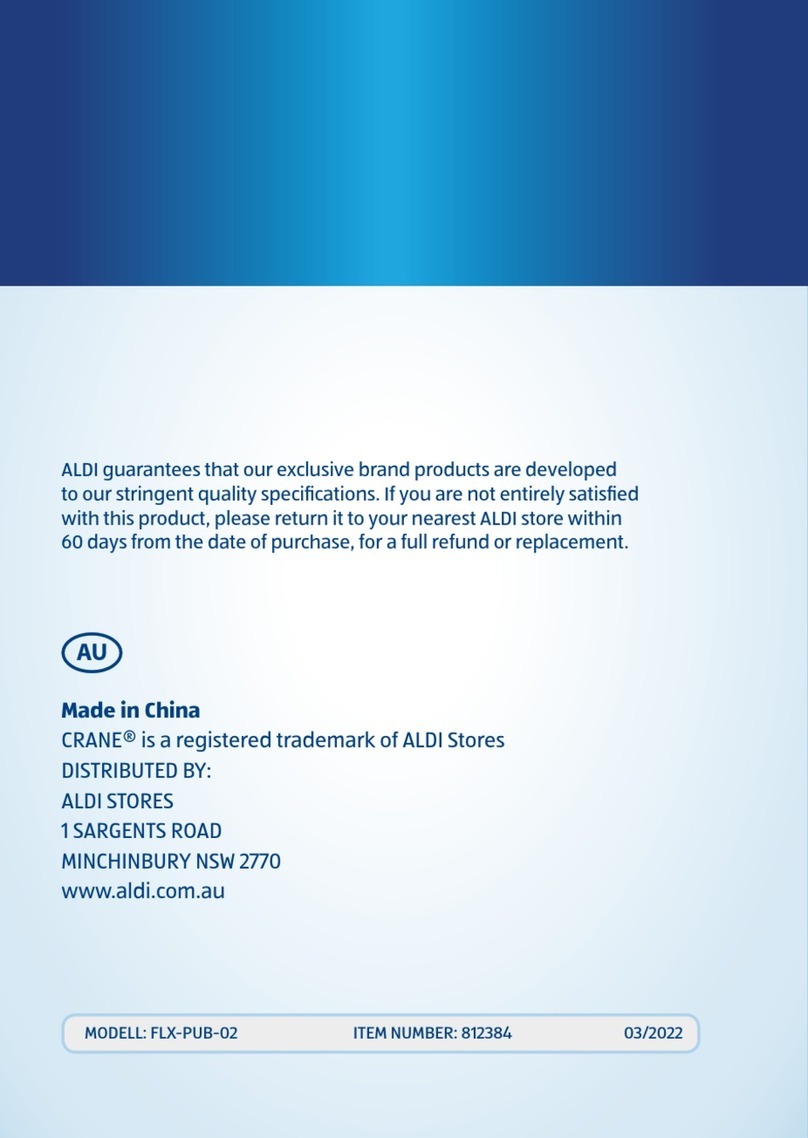
© stilum GmbH, Gewerbegebiet Larsheck, D-56271 Kleinmaischeid • Tel. +49 (0) 2689 92790-0 • All rights and product modications reserved. State: 13.01.2021 p. 3
Mounting instructions for target throwing „pila 1“
Item No. 55 2010 401
health
5500
2720
OHNE SCHRIFTLICHE ZUSTIMMUNG DER CONRADI+KAISER GMBH DARF DIESE
TECHNISCHE UNTERLAGE WEDER VERVIELFÄLTIGT, NOCH DRITTEN MITGETEILT ODER
ZUGÄNGLICH GEMACHT WERDEN, NOCH IN SONSTIGER WEISE MISSBRÄEUCHLICH VER-
WENDET WERDEN. ZUWIDERHANDLUNGEN WERDEN URHEBERRECHTLICH VERFOLGT.
Oberflächen nach
DIN ISO 1302
Reihe 2
Zul. Abweichung
DIN 2768 - mH
1
pila 1
Benennung
Gepr.
Werkstoff
Blatt
Datum
Projekt
Gez.
Zuschnitt
Zeichnungsnummer
Rev Änderung Datum
1:35
A3
Gewicht
Name
Name
Draufsicht
2117-00-00
Maßstab
Schramm 21.02.18
Gewerbegebiet Larsheck
56271 Kleinmaischeid
Deutschland
Area of the
minimum space
Diagram 3: Top view
7. The foundation of one-mast equipment has to be accessible for regularly ins-
pection.
8. Do not allow to use the equipment before the installation has been nished.
Attention: If the sports equipment has been incompletely installed or partly dis-
mantled when carrying out maintenance and repair work, this may lead to particu-
lar risks of injury for the user. For this reason make clearly visible that the equip-
ment shall not be used in such cases.
NOTE: Sports equipment, which contain components made of stainless steel
should not come with „normal“ steel parts in contact. Those steel parts may rub
o and leave small steel particles in combination with moisture brown rust stains.
If such corrosion occur on stainless steel parts, they are ne with an abrasive (240
grit) to remove. Please take care when transporting and setting up the fact that the
components are made of stainless steel with no „normal“ steel parts in contact.
In order to preserve a good visual appearance of your stilum sports equipment
over a long period one should take care of maintenance of the stainless surface
even despite of their corrosion resistance.
Especially areas, which can not be reached by rainfall should be frequently clea-
ned from dirt and deposits due to air pollution and dirt caused by the atmosphere.
Light soiling can easily be romoved by using a high pressure cleaner.
For persistent deposits use a clean cloth moistened with a special liquid cleaner
(e.g. on phosphoric acid) and rinse o with clear water after a short application
time. During cleaning with mild abrasive components, only wipe over stainless
steel surface in polishing direction.
For heavily soiled surfaces, polishes can be used (e.g. for cleaning chrome on
cars) or for greasy and oily dirt alcoholic cleaning agents and solvents (e.g. ethyl
alcohol, isopropyl alcohol or acetone).
However, it should be noted that the dissolved soiling is not spread over the sur-
face again.
Do not use any chlorid or hydrochloric containing cleaning products nor scouring
powder, bleaching - or silver polish cleaner. Cleaning intervals depend on type and
degree of soiling as well as on demands made on optical characteristics. Therefore
cleaning is advisable at intervals of six to twelve months – whereby in the case of
strong soiling it is appropriate to clean the equipment at intervals of three to six
months.



























